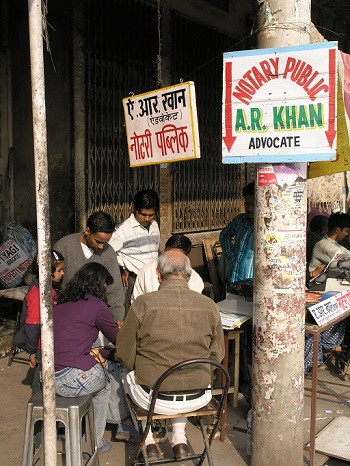Use 'Print preview' to check the number of pages and printer settings.
Print functionality varies between browsers.
Printable page generated Thursday, 25 April 2024, 2:46 AM
2 Power, politics and ethics in studying organisations
Introduction
In recent years, much attention has been devoted to considering the ethics of organisational research. This mainly focuses on how we should act towards the people who are involved in our research, i.e. research participants, and how they might reasonably expect to benefit from their participation.
A key ethical principle at stake here is
To appreciate the nature of the ethical demands and political pressures described above, we first need to understand how organisational knowledge is produced. In recent decades, organisational knowledge has been profoundly shaped by the globalisation of business schools within universities, as the main institution where academics are employed to teach students and do research. Business school globalisation is driven by the increased geographical mobility of academics and students, which means that more and more business schools are in global competition with one another.
One of the ways that schools try to distinguish the quality of their educational programmes, and attract staff and students, is by seeking accreditation from international bodies such as the Association to Advance Collegiate Schools of Business or EQUIS. A key performance indicator used by these bodies is the quality of the research that researchers in the school produce. This is measured using proxy indicators, such as the global ranking of the journal that the research is published in, the FT50 or the AJG Academic Journal Guide (AJG). Consequently, researchers face increasing pressure to publish in a small number of highly ranked North American journals, many of which are dominated by the positivist tradition (Grey, 2010).
Macdonald and Kam (2007) argue that the rise of a global academic ‘publish or perish’ culture has resulted in business researchers employing gamesmanship to maximise their chances of success. A key tactic involves writing papers that reviewers (who decide whether work is good enough to be accepted by a journal) are likely to regard as uncontroversial. To achieve this, researchers are more likely to use methods that are broadly accepted within the field rather than experiment with new research approaches. This includes using quantitative methods, which are widely assumed to be more rigorous than qualitative methods and are more common in highly ranked management journals (Bell, Kothiyal and Willmott, 2017). They are less likely to challenge existing theory: a practice referred to as ‘gap-spotting’, rather than ‘problematisation’ (see Sandberg and Alvesson, 2011 for a summary).
While these political pressures are experienced by organisational researchers across the globe, they can be particularly powerfully felt by researchers in the
As a consequence of these political pressures, organisational researchers may assume – or are told by established scholars – that empowering research is too risky because it is insufficiently rigorous, systematic or scientific. This brings us back to thinking about ethics and specifically to the question of who research is for: this involves considering the purposes that organisational research serves and the responsibilities that researchers have towards others and the world around them, especially those who are disadvantaged, oppressed or exploited as a consequence of organisational logics that are founded on modernist values of scientific rationalism, based on an Enlightenment view of progress that developed in the
The dominant paradigm in management and organisation studies is based on a
However, organisational researchers working in the
This provides the context within which we encourage you to think about doing empowering research as a way of producing knowledge that challenges dominant research norms that perpetuate elitist structures and reinforce
In summary, empowering research involves challenging the resurgence of conservative, technocratic and
Management research as craft
Here Emma discusses the features of research as craft, an approach that enables methods and methodology to be understood as more than a set of techniques and facilitates greater consideration of ethics and politics. The need for craft(y) research will be situated in the context of business school globalisation, and the pressures that this places on researchers to conform to research norms set by globally ranked journals. Concepts such as
Activity: Film Focus 2, ‘Management research as craft’ – Emma Bell
Watch the film and make your own notes in response to the following questions:
- Summarise the idea of research as craft in your own words.
- Do you see your own research as craft? Why – or why not?
- What advantages or risks are associated with seeing research as craft?

Transcript
I’m Emma Bell, and I work at The Open University in the UK. And today, I’m going to be talking to you about management research as craft. I’m going to explain to you the practice of crafting management research and how it differs from other forms of management research, including positivist test and quantitative forms of study. I’m going to be exploring with you how you might think about practising research craft, and I’m going to identify some of the threats and challenges that crafting management research presents to the dominant norms within our field.
I’ll begin by situating this idea of management research as craft in context. Firstly, it’s important to bear in mind that management and organisations, as aspects of the social world, are amenable to the same methods of study as used by other social scientists, including in the disciplines of anthropology, sociology, psychology or economic.
Second and related to this, how these methods are practised is dependent on the specific norms and values that pertain to the community of research practice. So within business and management research, there are specific values and practices that have become dominant and others that perhaps have become peripheral, and that may be quite different from sociology or anthropology.
Research methods do not simply describe reality, they help to produce it. This is quite a complex philosophical point which we will come back to at various points during this lecture series. For now, what I would like you to think about is the fact that the dominance of certain methods and practices within business and management research frames and constrains the type of knowledge that is produced. And it is the purpose of this series to start to explore alternatives and to use the process of crafting research as a way of thinking about how we do this.
Over the last 50 years, there has been an explosion of academic literature in the social sciences on how to do research and how methods should be used. Martyn Hammersley in his work categorises this literature into three genres. The first genre is methodology as technique. This literature sets out to codify or develop rules for the application of research methods. It sets out the appropriate way of conducting research according to a particular method, whether it’s a survey instrument, or a questionnaire, or an interview. So the idea is that the researcher takes a research problem and finds the appropriate research method in order to solve or address the problem.
The second genre, methodology as philosophy, attempts to explore the underlying assumptions which define how we produce knowledge. These are questions of ontology (what is truth?) and epistemology (how knowledge is produced). The third genre, methodology as autobiography, focuses on the interdependent relationship between the researcher as producing knowledge and the subject of the research, and suggests that there is a reciprocal relationship between these two, that they cannot be separated, that the researcher is not a fly on the wall, is not independent of the context of study – rather, they help to produce it.
When I go to conferences, I often end up talking to people about their research – that’s one of the nice things about attending research conferences. Sometimes the people I talk to have used my co-author textbook, Business Research Methods, when they have been learning how to do research and deciding on which methods to use.
At the end of these conversations, occasionally someone might say to me, ‘Is what I’ve done OK?’ And that concerns me, because it suggests that the textbook presents a set of codified rules according to which research can be done and should be done. And it suggests that the dominant genre within management research is methodology-as-technique.
Now there are reasons why methodology-as-technique has become the dominant genre in management research, and it is not necessarily the case in other disciplines such as sociology and anthropology. And in part, this relates to the intense pressures that management researchers in business schools face as they seek to compete, to publish in a small number of highly-ranked journals which are dominated by positivists and quantitative research.
One of the ways in which we can seek to challenge the dominance of methodology-as-technique in management research is by thinking about our research practice as craft. So what is craft and how does it relate to management research? Craft is an activity of making something: in this case, making knowledge. It relies on skill. It’s also a mode of being, a way of feeling and interacting with the world.
In traditional crafts, such as woodworking, this involves an intimate connection between the tools of making, the objects, the wood, and the hand of the maker. Woodworkers such as David Pye refer to this as the workmanship of risk, whereby each piece of wood has unique organic properties, and that it is the skill and the experience of the person who is handling and shaping that wood that informs their engagement with it. And each object is unique. It has variations that are inherent to those material characteristics and properties.
And this idea is relevant to research. It’s relevant because we cannot know in advance of a piece of research what we will find. Each situation is historically and culturally unique. And it is these characteristics of management research which lend themselves to the metaphor of craft.
So craft is a way of thinking about the world that we inhabit and connecting ourselves to that world. It acknowledges the close relationship between the researcher and what they are studying or who they are studying. So thinking about management research as craft suggests that methods are not just about methodological and empirical precision, they’re also about the creative process of searching for mystery and puzzling about the nature of knowledge.
Denzin and Lincoln use the term ‘bricolage’ to describe this piecing together through which in a given situation, the researcher draws on their skills and their experience to deal with the unpredictability and the uniqueness of what presents itself in ways that are not captured in textbook accounts of methods. And bricolage is an essential aspect of research craft. It highlights the flexibility of the researcher and their dedication and skill, and how they apply that in their own unique context rather than in the way it is prescribed to them.
The process of learning how to do management research as craft, then, relies on access to a community of practice, a community that enables the researcher to learn by doing, to learn through apprenticeship, through seeing more experienced practitioners of research craft as they engage in the process themselves and learning from them.
So how does a crafty researcher see the world? Generally they have a constructionist view of reality as constantly shifting and emergent and situated in context determined by people. Their approach to the development of theory is either inductive or abductive. Inductively, they are seeking to develop theory from what emerges in an empirical situation. Abductively, they are puzzling over the gap or the difference between theory and the literature and what they see in an empirical situation. This is quite different from a deductive approach, as characterised typically by hypothesis testing.
So the type of knowledge that crafty researchers create is idiographic. It’s dependent on the situation, and unique. The criteria of generalisability in the sense of replication are not typical of crafty research. So crafty research is evaluated according to the criteria of trustworthiness and authenticity of the researcher and the data that is generated through the research process, rather than the criteria of reliability and validity.
So how do you become a crafty researcher? C. Wright Mills in his book, The Sociological Imagination, talks about the open empathetic attitude that lies at the heart of craft research. And this idea of imagination, of being open to the world as it arises, is core and central to the idea of research craft.
Becoming a crafty researcher is also about honing your abilities of perception, about sensory awareness: becoming attuned through sight and sound and smell and touch to the encounters that you have with the world. And its these abilities that distinguish crafty research from the practice of focusing on intellectual ideas, as they are presented purely linguistically. It’s about the whole sensory experience of the research encounter.
Being a crafty researcher also relies on having an attitude of openness and undecidability. As Abbott says in his book, Methods of Discovery: ‘researchers come at an issue with only a gut feeling that there is something interesting about it. Figuring out what the puzzle really is often happens in parallel with finding the answer itself.’
So I hope you’ve gained an insight into the idea of management research as craft, and I hope you share my enthusiasm for doing management research in crafty ways.
We recommend that you keep notes of your answers to these questions so you can return to them during the course.
Ethics in research
Ethical principles of protection from harm, informed consent, confidentiality and anonymity are generally assumed to be universally applicable, regardless of context. However, this approach to research ethics reflects a neo-colonial bias and is an aspect of methodological globalisation whereby Western forms of knowledge and approaches to research are privileged and exported to the global South. In this session, Emma will problematise these assumptions and explore alternatives.
Activity: Film Focus 3, ‘Ethics in research’ – Emma Bell
Watch the film and make your own notes in response to the following questions:
- Are you aware of any ‘ethical oversight regimes’ where you study, work or do research? Can you describe them?
- What alternatives to informed consent could you think of to more effectively empower yourself and others?

Transcript: Ethics in research
So what is an ethical oversight regime and what does it do? Essentially it’s a bureaucratic process: a set of rules and an organising body whose role it is to ensure the ethical conduct of research. So what do these systems and processes actually accomplish?
They set out the general principles of ethical conduct that have to be complied with or aspired to. They provide guidance to researchers on what to do in difficult ethical situations where there may be ambiguity. They potentially dictate what can happen in the case of non-compliance. A researcher will be told, for example, by their university that they can do research only on the condition that they do it in the way that they have described in their proposal, which has received approval. Failure to do so may result in a penalty. For example, funding being withdrawn or disciplinary action being taken against the researcher.
It is argued that this helps to ensure professionalism, to ensure that researchers are held to account by society. However, it’s also argued that it is a sign of the lack of trust in professionals, a sign of the declining confidence in professionals to regulate their conduct themselves.
As we know from business organisations, ethics, codes and rules of conduct can also serve a decorative function, sitting on the shelf and serving to cover up for unethical practises.
Finally, ethical oversight regimes can encourage a compliance orientation. For example, when I was teaching at another university, I was giving a session to research students on research ethics. And before the session, I met one of the students on the corridor, and he said to me, ‘I’m sorry, I’ve got another commitment, I can’t come to today’s class.’ And he said, ‘Well, what is it about?’ And I said, ‘It’s on research ethics.’ And he said, ‘Oh that’s OK, because I’ve already got my ethical approval.’
So this is an example of a kind of hoop-jumping mentality where ethics becomes a problem to be solved. Through the introduction of bureaucratic compliance regimes, researchers end up being oriented towards getting approval rather than seeing ethics as an integral and ongoing process throughout the research.
A further concern has been referred to as ethics creep. Haggerty defines this as the process whereby the bureaucratic structures of ethical regulation encourage new definitions of what constitutes an ethical issue. So that the idea of what has to be considered as ethics is constantly expanding, and this is a cause for potential concern.
In my work with Nivedita Kothiyal, we discuss the issue of core-periphery relations and research ethics. Ethical principles such as informed consent are generally assumed to be universal, independent of context. This is an aspect of the globalisation of research methods as the export of methods and methodological practises from the global north to the global south.
However, this does not take into account core-periphery power relations or the post-colonial conditions that create inequalities between the global north and the global south. Ethical oversight regimes originated in the United States in the 1970s, and only later were they exported to other countries including Canada, Australia and the UK. Subsequently and in our research, we track the way in which those principles are now becoming globalised.
I now want to focus on the principle of informed consent and use this to show how problems arise from the globalisation of these ethical oversight regimes. Informed consent is used to ensure that prospective participants are fully appraised of the research, its purposes, and their rights within it. This enables them not only to agree or decline to participate, but also to withdraw from the research at any time.
However, there are a number of problems with informed consent that have been identified by qualitative researchers. This approach to ethics promotes a distanced, objectivist stance which may be suitable for some research projects, but not all. It assumes that the objectives of the research are known in advance, and that the types of methods that are going to be used and the participants who are going to be involved in the study are predetermined.
This is not consistent with many forms of qualitative inquiry, including ethnographic research and action research, where it is only through the process of doing the research that the research question becomes clear. Research is an iterative process. It involves adjustments along the way. So it’s impossible sometimes to set out in advance exactly what the study will involve in order to then get approval for it to take place.
In relation to informed consent, it is argued that consent is situated and contextual. It involves repeated checking with participants at every stage. This means that consent cannot simply be obtained in a single moment by getting participants to sign a form. A further consideration concerns the power relations involved in the research relationships. The concept of informed consent tends to presume that research participants are vulnerable and require protection. This is not always the case.
For example, in management research, research participants may be very powerful people, leaders of organisations who have more power than the researcher. In the case of participatory research, consent is seen as open-ended and ongoing.
So to summarise, this approach to research ethics is especially problematic in qualitative research that seeks to empower research participants and involve them closely in the research process. In my research with Nivedita Kothiyal involving Indian management scholars, they identified a number of further problems in relation to the implementation of informed consent.
In some cultures, research participants may view participation as a personal favour to the researcher. The direct request for consent may be regarded as rude behaviour that fails to honour the trust that has been established. A further issue relates to the bureaucratic nature of these processes. Signing consent forms is associated in some cultures with the colonial legacy, with an imposition of power.
For example, one Indian scholar, in studying marginalised semi-literate communities, referred to the possibility that presenting them with a piece of paper to sign could be interpreted as an attempt to seize their land or gain their consent to take something away from them.
So in short, ethical guidelines failed to account for the power relations that were involved in studying marginalised, oppressed, and exploited communities that could make the seeking of informed consent using bureaucratic processes and procedures highly problematic.
We recommend that you keep notes of your answers to these questions so you can return to them during the course.
Stories from the field
Jaideep Sharma: doing fieldwork at Clean Kids
Jaideep, a researcher on the Project Team, studied the Clean Kids initiative organised by Your Medics to recycle and repurpose used soap from hotels to produce bars of soap that are redistributed to local communities. Jaideep interviewed the female workers on the production line where the recycled bars of soap are cleaned and remade into new soap bars. He asked the workers about what it means to them to do such work. One of the workers is shown in this image grating used soap ready to be remoulded into new bars. Jaideep found it to be a labour-intensive process, but also meaningful and rewarding one for the workers who are very aware of working as part of a social enterprise to benefit local communities.
In the next image, you can see Jaideep (to the right, facing the group of children) participating in distributing the soaps to local schoolchildren. The joy of the children in receiving these potentially life changing gifts is evident in the image.
Jaideep’s research involved him getting involved in the Clean Kids supply chain process. To begin to understand the meanings and value of the work and the products to workers and recipients, he needed to adopt an
Interpretive approaches to research share an openness to understanding how people make sense of their lives and work. Interpretivism is a way of seeking knowledge – an
In the next section you will learn about the importance of context and why the researcher should never consider themselves experts about other people’s lives.
Recommended reading
Bell, E. and Kothiyal, N. (2018) ‘Ethics creep from the core to the periphery’, in C. Cassell, A. Cunliffe and G. Grandy (eds.) SAGE Handbook of Qualitative Business and Management Research Methods, pp. 546–61. Available at: https://pmt-eu.hosted.exlibrisgroup.com/ permalink/ f/ gvehrt/ TN_gvrl_refCX7495000045 (accessed 7 October 2019).
Bell, E., Kothiyal, N. and Willmott, H. (2017) ‘Methodology-as-technique and the meaning of rigor in globalized management research’, British Journal of Management, 28(3): 534-550. Available at: https://pmt-eu.hosted.exlibrisgroup.com/ permalink/ f/ gvehrt/ TN_gale_ofa498289754 (accessed 7 October 2019).
Bell, E. and Wray Bliss, E. (2009) ‘Research ethics: regulations and responsibilities’, in A. Bryman and D. Buchanan (eds) Sage Handbook of Organizational Research Methods, pp. 78–92. London: Sage.


